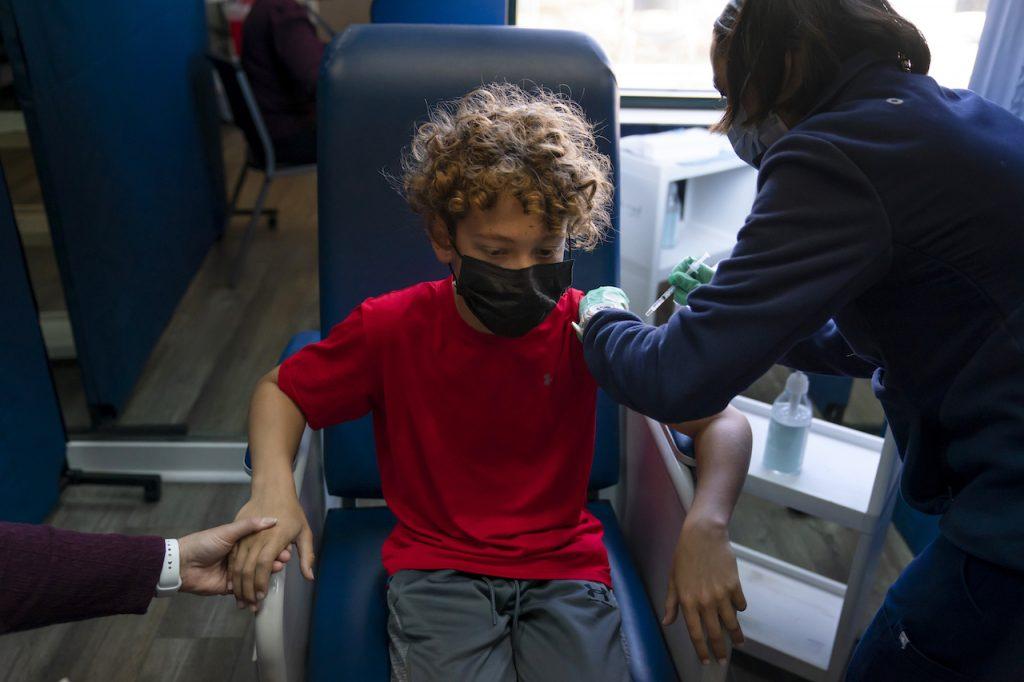US experts to review heart problems among teens after Covid shots
There have been more than 300 confirmed cases of heart muscle inflammation among adolescents and young adults after receiving mRNA Covid vaccines.
Just In
A panel of experts convened by the top US health agency will hold a meeting Wednesday to review data surrounding more than 300 confirmed cases of heart muscle inflammation among adolescents and young adults after receiving mRNA Covid vaccines.
The committee, hosted by the Centers for Disease Control and Prevention (CDC), will hear a risk-benefit analysis as researchers explore whether the shots can cause myocarditis, as well as cases of inflammation of the heart lining, pericarditis.
Israel first was the first country to identify a possible link.
“These cases are rare, and the vast majority have fully resolved with rest and supportive care,” said CDC director Rochelle Walensky last week ahead of the meeting, which was initially scheduled for last Friday but postponed because of a new public holiday.
The cases that have been confirmed were investigated following initial reports to vaccine safety monitoring systems, and come from more than 20 million adolescents and young adults that have been vaccinated, added Walensky.
While 300 out of 20 million is a small number, it is still likely higher than what would otherwise be expected for the age group.
A previous meeting on the issue convened on June 10 by the Food and Drug Administration heard that most of the cases were among young men and occurred within a week of the second dose.
The new CDC hearing will dive deeper into updated data that has been independently verified, rather than being self-reported.
Mostly mild cases
Lorry Rubin, director of paediatric infectious diseases at Cohen Children’s Medical Center told AFP: “I’m concerned, but I’d emphasise that cause and effect has not yet been established.”
He said that his own hospital had seen a few cases of adolescent males developing chest pain a day or two after the second dose of an mRNA vaccine.
The Pfizer vaccine is currently the only shot authorised in adolescents aged 12 and up.
“On the other hand, the cases have been relatively mild,” added Rubin, with the patients returning to normal within a few days after treatment with medicine like ibuprofen.
Myocarditis is known to be seasonal, with higher incidence in summer months potentially linked to enteroviruses, and is estimated to affect one per 100,000 children per year.
Even if a causal link to the vaccines is established, Rubin said it should be weighed against the risks to children from Covid.
While children are less affected than adults, the virus has still hospitalised more than 3,000 children in the US over the course of the pandemic, and led to more than 300 deaths, according to official data. Some 2,700 people under-30 have died from Covid.
“We’ve actually had more kids infected with Covid that we know who have had long term impacts, some of whom have been quite ill with cardiac symptoms in the hospital,” stressed Lee Savio Beers, president of the American Academy of Pediatrics.
Other experts have adopted a more cautious line.
Monica Gandhi, an infectious diseases and public health expert at the University of California San Francisco, said that the United States had gone beyond some other countries’ recommendations on vaccinating teens.
These include Germany and Israel, which only recommend vaccinating adolescents who are at high risk, while Britain is still examining the data and hasn’t yet reached a decision.
“It’s a new vaccine, it’s been increasingly elevated as a concern, and all other countries except for us have done something that errs on the side of safety,” she told AFP, adding she was holding off having her 13-year-old child receive a second dose until she learns more.
Subscribe to our newsletter
To be updated with all the latest news and analyses daily.
